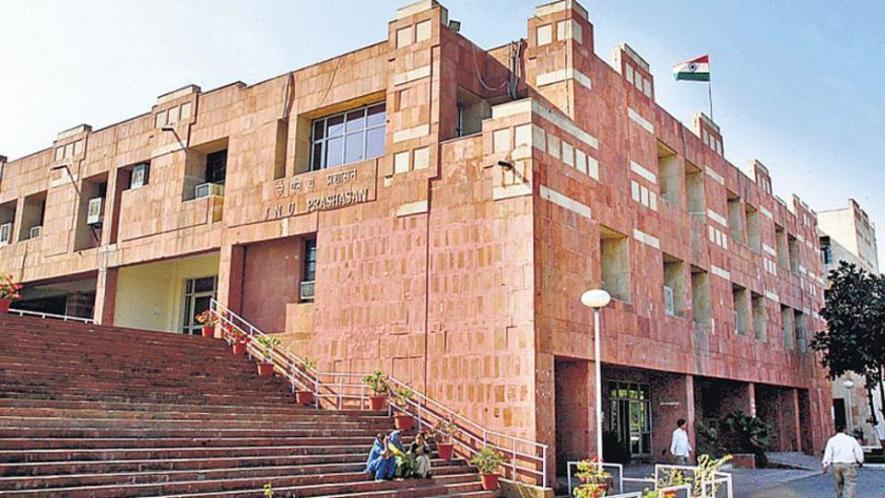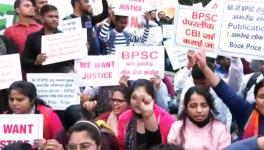JNU Admin Releases ‘Revised’ Fee Structure Unilaterally

Representational Image. Image Courtesy: Hindustan Times
The Jawaharlal Nehru University administration on Monday, December 30, through its circular, revised the fee for the next semester commencing January 1, 2020, even as the students' agitation against the recommendations of the New Hostel Manual continues for more than two months. The new rates for the residents of hostels except Mahanadi and Subansir hostels have been fixed at Rs 600 and Rs 300 per student for Single and Double Seater rooms, respectively. An additional medical fee of Rs 500 which was introduced on Monday was withdrawn a day later.
However, the residents of Mahanadi and Subansir hostel will have to pay the increased fee of Rs 1,500 per student per month. They will be also levied the charges for water and electricity. Both hostels are reserved for married couples who can also keep their personal household appliances with them.
Interestingly, the circulars issued by the JNU administration remained silent on previously proposed utility charges. The charges had included the salaries of mess and sanitation workers as well as other miscellaneous expenditures.
Reacting to the changes, the Jawaharlal Nehru University Students' Union (JNUSU) said that the university administration has been making these decisions without taking into account any of the stakeholders of the university. A statement released by JNUSU in response to the latest structure said, "The Delhi High Court in its order passed on 23.12.19 observed that the solution to the current crisis must be found by the Vice-Chancellor only through dialogue with stakeholders which is students of the University. The administration held two meetings with the JNUSU on 26th and 30th December. However, the JNUSU gravely notes that these deceitful attempts are mere divisive ploys espoused by the draconian administration. While having communicated through informal channels that it would initiate dialogue with the JNUSU, in a shocking display of their insidious intentions, the administration brought out a notice that was in complete violation of a conducive environment where negotiations can further proceed."
Also watch: JNU Protest: May Have to Quit After Fee Hike, Say Students
The students' body has also expressed its displeasure over the trajectory of latest events where the administration not only asked students to submit their examination answer sheets over WhatsApp, but is also currently enrolling the students with 'provisional registration'. The statement said, "Making a complete mockery of the evaluation process, the administration resorted to getting exams conducted on WhatsApp to force through the end of the semester. When all its deceitful maneuvers failed, it is now using underhand sly methods to conceal its administrative failures by "granting" so called provisional registration. Even this supposedly provisional registration finds no mention in JNU statutes. Despite what was mentioned in the MHRD record of discussions regarding a buffer period of two weeks, WhatsApp examinations are being legitimised by a dual process of registration. We note that the administration which was threatening to fail students and not let them register has now had to come down to the so-called 'provisional registration' model. But that is a sham tactics. Proper exams with buffer period must be held for all students."
Echoing similar sentiment, the teachers' body of the university, JNU Teachers’ Association (JNUTA) expressed its reservations about the newly declared rates. Reacting to the circulars, D K Lobiyal, President of JNUTA, said,"The Circulars issued today also provide stark evidence of the game of deceit that the administration is prone to indulge in at the behest of the VC. The two IHA (Inter Hall Administration) Circulars announce revised hostel charges applicable from the Winter Semester of 2019-20, claiming to derive their legitimacy from the resolutions of the 283rd Executive Council meeting of November 13, 2019. While the Circular for the Subansir (Mahanadi) Hostel includes water and electricity charges, the other general circular is silent on the issue of Utility and Service Charges. The levying of this new charge was part of the decision announced in the Registrar’s Press Note issued after the Executive Council Meeting on November 13. These charges were then supposedly reduced on November 25, 2019 on the recommendations of a ‘High-Level Committee’ constituted by the VC. "
He added, “The absence of any reference to these Utility and service charges in the latest Circular can only mean one of two things – a) that these have been withdrawn as was implied in the MHRD’s (Ministry of Human Resource Development) record of discussions, on the grounds that UGC (University Grants Commission) will continue to finance these expenditures; or b) that they are not being announced now but will be demanded from students at the end of the month. Either way, the absence of an explicit statement on what has happened to these charges is tantamount to being less than truthful – if it is not deliberately seeking to mislead the students then the Administration is trying to gloss over the fact that it has been forced to concede at least one major demand of the students."
Get the latest reports & analysis with people's perspective on Protests, movements & deep analytical videos, discussions of the current affairs in your Telegram app. Subscribe to NewsClick's Telegram channel & get Real-Time updates on stories, as they get published on our website.
























